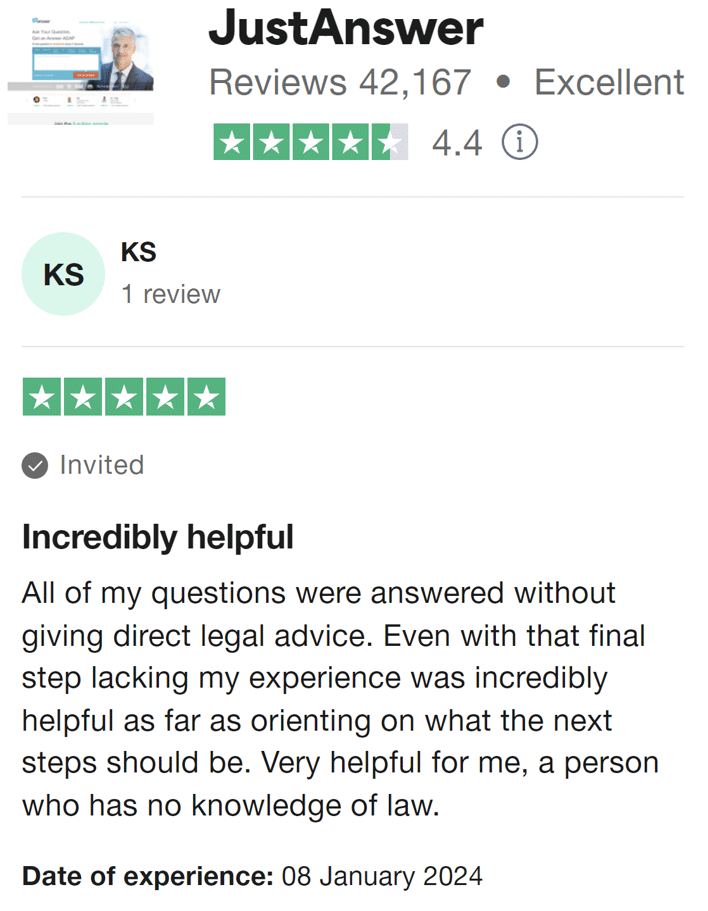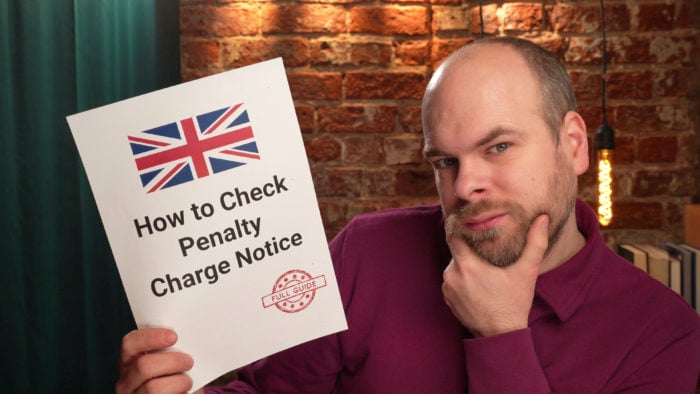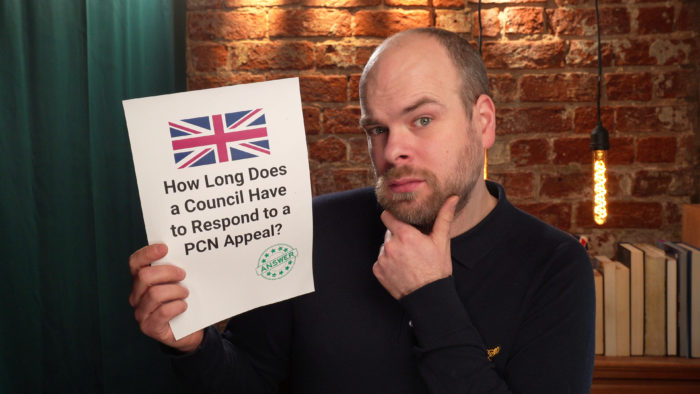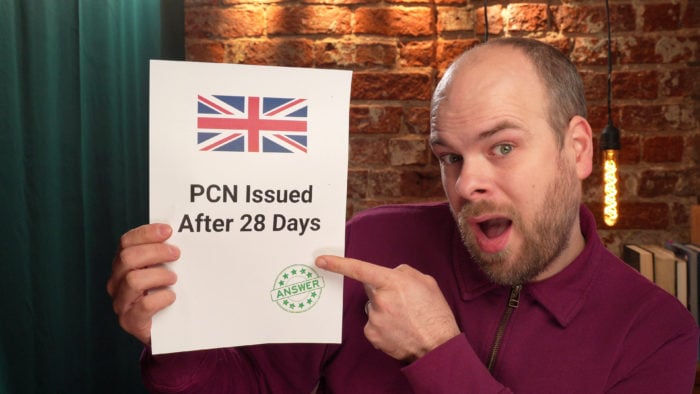Penalty Charge Notice or Parking Charge Notice – What’s the difference?
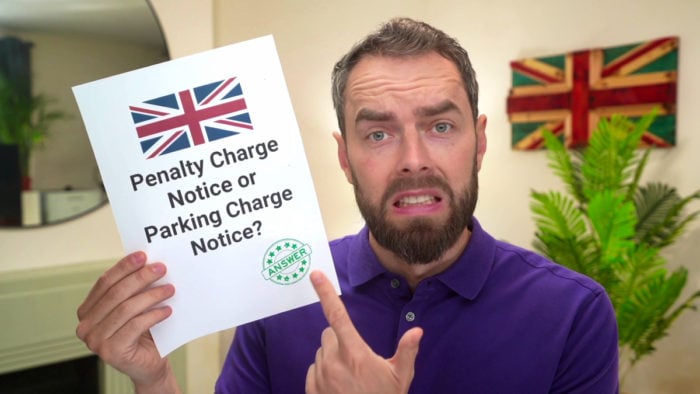
Did you receive a Penalty Charge Notice (PCN) or a Parking Charge Notice and you’re not sure how to handle it? Don’t worry, we’re here to help. Each month, over 130,000 people visit our website for guidance on fines and parking tickets, so you’re not alone in this.
In fact, Churchill Motor Insurance reports that in 2022, UK councils issued an average of 19,631 daily parking fines, a 12% increase from the previous year.1
We know that getting a PCN or a parking notice can be a real pain. It can make you feel frustrated and confused. So, we’ve made this guide to clear things up. In it, we’ll explain:
- What a Penalty Charge Notice is and when you might get one.
- What a Parking Charge Notice is and why it’s different from a PCN.
- If you need to pay these charges right away.
- How to appeal if you think the charge isn’t fair.
- What might happen if you decide not to pay.
We understand what you’re going through. We’ve been in your shoes, and we’re here to help. So, let’s dive in and learn more about these notices.
Most Appeals Succeed
In some circumstances, you might have a legitimate reason not to pay your fine.
It’s a bit sneaky, but the last time I needed legal advice, I paid £5 for a trial to chat with an online solicitor called JustAnswer.
Not only did I save £50 on solicitor feeds, I also won my case and didn’t have to pay my £271 fine.
Chat below to get started with JustAnswer
*Around 35,000 people dispute their tickets each year with the Traffic Penalty Tribunal, and a striking 64% of those appeals are successful, so it’s well worth a try.
What is a PCN for?
Penalty Charge Notices can be served to motorists for a range of reasons. The most common reasons for receiving a Penalty Charge Notice are parking contraventions on public land or minor driving offences.
The type of driving offences that could result in a Penalty Charge Notice include:
- Driving in a bus lane at times when it’s not permitted
- Turning right or left from a junction when it’s not allowed
As mentioned, you can also be issued a Penalty Charge Notice from a transport group. Common reasons why you would receive these fines from a transport group include:
- Not paying the London Congestion Charge
- Not paying the Dartford Crossing Charge by the deadline
» TAKE ACTION NOW: Get legal support from JustAnswer
What is a Parking Fine for?
A Parking Charge Notice is exclusively issued for alleged parking contraventions on privately-owned land.
Car park management companies often manage car parks for private landowners and businesses, such as gyms and supermarkets. They oversee all aspects of the legal operation of the car park using staff, technologies and cameras.
If the parking company identifies a motorist who hasn’t paid for parking or has overstayed their paid-for parking, they can send a Parking Charge Notice to the registered vehicle keeper’s address.
However, as we will discuss below, these parking fines aren’t real fines.
What is the difference?
The main difference between a Penalty Charge Notice and a Parking Charge Notice is that the former is a real fine from a local authority while the latter is a type of invoice from a private company.
Here is a breakdown of the key differences between a Penalty Charge Notice and a Parking Charge Notice:
| Penalty Charge Notice | Parking Charge Notice |
| Issued by local authority or council | Issued by private company |
| Is a real fine covered by Road Traffic Act | Not a real fine but an invoice for breach of contract |
| Can be issued for parking contraventions or minor traffic violations | Issued for parking contraventions |
| Enforcement is more stringent and effective | Enforcement is less stringent |

There are also some similarities. For example, both can be appealed, and appeals can be escalated when the initial appeal is rejected. In order to appeal, certain processes must be followed. Here’s a quick table summarizing the different stages of appealing your PCN.
| Process: | Steps you should take: |
|---|---|
| When you receive the ticket… | You should gather as much evidence as you can to support your appeal claim and prove that the ticket was unfairly issued. |
| If you were given the ticket in person/attached to your car… | You must make an informal appeal (sent to the local authority/council that issued the PCN) within 14 days. This should be a letter with the evidence proving why the ticket was incorrectly given. |
| If it was posted to you… | You will be given 21 days to submit an informal appeal (from the day you received the letter). Your informal appeal should be a letter with the evidence proving why the ticket was incorrectly given. |
| If the informal appeal is rejected… | You will receive a Notice to Owner and will have 28 days to respond to this with a formal appeal. You can conduct the formal appeal online or via paper form. The Traffic Penalty Tribunal can send you one of these forms. |
| If the formal appeal is rejected… | You will receive a Notice of Rejection. From here, you are free to challenge the council’s verdict at an independent tribunal. |
| If the independent tribunal disagrees with your appeal… | You should pay the ticket within 28 days of the tribunal rejecting your appeal. If you don’t, the fine will be increased by 50%. If you don’t have the money to pay the fine, you should contact Citizens Advice or another debt charity. |
And both local authorities and private companies must offer a discounted fine if the motorist agrees to pay within 14 days.
You might be wondering why they both sound so similar. It’s believed that Parking Charge Notices have been purposely made to sound like Penalty Charge Notices.
Because private companies know their parking fines aren’t legitimate fines, they have decided to make them sound similar and confuse some motorists into thinking they’ve received a Penalty Charge Notice.
Successful Appeal Case Study
Situation
| Initial Fine | £100 |
| Additional Fees | £171 |
| Total Fine | £271 |
The Appeal Process
Scott used JustAnswer, online legal service to enhance his appeal. The trial of this cost him just £5.
| Total Fine | £271 |
| Cost of legal advice | £5 |
JustAnswer helped Scott craft the best appeal possible and he was able to win his case.
Scott’s fine was cancelled and he only paid £5 for the legal help.
In partnership with Just Answer.
What happens if you don’t pay a PCN?
If you don’t pay or appeal your Penalty Charge Notice within 28 days, the council will send a charge certificate that increases your fine by 50%.
You must pay this increased fine within 14 days, or the council will ask for a court order to make you pay.
If you continue to avoid paying, the council could enforce the debt using various methods.
One common method is for the council to enforce the payment through bailiffs. These bailiffs will come to your home to recover payment or seize goods to then be sold. They also charge expensive fees that are added to your debt.
What happens if you don’t pay a Parking fine?
The process of chasing a Parking Charge Notice is less stringent. The company could chase you themselves or they could outsource the process to a debt collection agency.
These debt collectors don’t have any additional legal powers, and they’re not bailiffs.
They could then enforce the debt in five stages.
- Send payment requests via letter, texts and calls
- Add late fees to the debt
- Threaten legal action
- Take you to court and win a court order
- Enforce the debt by employing bailiffs
Some companies will stop at stage 3 and not actually take you to court, allowing you to get away without paying. But this is a high risk on your part because many companies will take you to court, even for smaller amounts.
Join thousands of others who got legal help for a £5 trial
Getting the support of a Solicitor can take a huge weight off your mind.
Reviews shown are for JustAnswer.
Is a Fixed Penalty Notice the same as a PCN?
Fixed Penalty Notices (FPN) are issued by the police for motorist offences such as dangerous driving or speeding. They are not the same as a Penalty Charge Notice.
Receiving an FPN could lead to more significant fines, including penalty points on your license, court action and even a driving ban.
Quick Recap
Penalty Charge Notices are real fines from local authorities and transport groups, whereas a Parking Charge Notice is considered an invoice from a private company.
If you receive a Parking Charge Notice that you believe is unfair, don’t automatically pay it. I suggest you (always) file an appeal with the parking operator as soon as possible. It may be worth reporting it to the landowner (e.g. a retailer or medical facility) to intervene as well.
Now, if you receive a Penalty Charge Notice from a council or Transport for London, you may pay the fine or lodge an appeal. But don’t just ignore it either, as the charge will go up.
Hire a Parking Solicitor for less than a coffee.
If you’re thinking about appealing your parking ticket then getting some professional advice is a good idea.
Getting the support of a Solicitor can make your appeal much more likely to win.
For a £5 trial, Solicitors from JustAnswer can look at your case and help you create an airtight appeal.
Try it below
In partnership with Just Answer.
